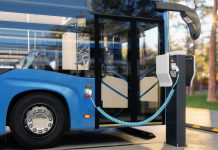In this post, Andy Allan of CAT Autokeys discusses his five predictions for the future of millennials and their motors, and how companies will adapt in 2019 and beyond
Nothing in life is certain except death, taxes, and an article appearing daily in the news either slating or praising millennials. Millennials, or Generation Y, are the group of people who were born between 1981 and 1996. Opinions of millennials range from those claiming that they are everything wrong with our changing society, others that they are saving it. Millennials are arguably the most influential generation of consumers today, making smart, considered decisions all the time.
One such decision is their method of transport. Reports suggest that millennials are buying fewer cars than older generations, with 43% of them saying that having a car was a hassle. Cars used to be the ultimate status symbol, so why are so many millennials avoiding them? Is it sustainable living? The rise of Uber and Lyft? Are they holding on for connected cars? Or do they simply just not want to drive? As they move into their prime spending years, dealerships and manufacturers need to ensure that they focus and market to millennials.
Mobile is and will continue to be money
As many companies are already aware, simply having a desktop-compatible website is not enough. With more than a quarter of millennials spending more than five hours per day on their mobile, and 78% of them saying that they would give up calls on their phone to have unlimited internet, millennials are by far one of the most active markets in the mobile stratosphere.
Car sales can benefit hugely from mobiles if done right. On-demand information, interactive content and call-to-action touch points are millennial fundamentals in the mobile user experience leading to a car sale. If a dealership doesn’t have an app, an appealing logo or an engaging mobile-friendly website, you’re already falling behind your local and national competitors. 2019 will be the year that companies actively invest in an online and digital persona.
Adopt the Greggs approach
Millennials are 247% more likely to be influenced by social media and online content. These numbers are not to argue with – branding must be engaging. We’ve already seen it in the first week of 2019 with the Greggs sausage roll model and other food brands following suit in the vegan conversation. Motoring companies are no different. It’s simple – provoking conversation can propel sales.
Influencers will continue to thrive, but company brand ambassadors and their thoughts on social topics will be equally as important. For example, Mercedes-Benz content often focuses on one of the top talking points of the moment – CO2 emissions, to share its efforts to improve the environment. Ford also gave away 100 of its latest Fiesta model to social media “influencers” to share their experience in the vehicle. This led to more than 5 million engagements on social networks, and 38% awareness of millennials about the product.
Like Greggs, it’s important to listen to customer feedback and engage with them. Brands need to knock out good content consistently, to see their social and customer following start returning the favour.
Follow the Tesla Model
With Tesla ranked as one of the most favoured brands by millennials, there is no doubt car dealers should be looking for ways to adopt the brand’s consumer appeal. Tesla’s reputation as a brand supported by its CEO, Elon Musk, focuses on instilling trust greater than just making a sale when it comes to customer acquisition. Only five days after announcing Tesla’s Model 3, the car racked up over 275,000 pre-orders – despite not even being built yet.
When marketing cars, highlighting its high-tech features will position your dealership as competitive to millennials. Tesla has done this especially well so far – with the Model 3’s iPad-like dashboard screen for seamless smartphone integration coupled with a luxurious and functional interior, the car has been dubbed the ‘ideal millennial car’.
AI will be used to lower insurance
AI initiatives are already being developed in the automotive world, but its use of data and predictive analytics has the potential to take the auto insurance world by storm. With reports that millennials who live with their parents can pay up to 73% more for auto insurance than those who own their own residence, they will be looking to substantially cut down. Predictive analytics software, in the future, can allow for personalised insurance, which cuts down on a “one size fits all” approach depending on category, and makes the insurance more catered to the drivers actual use, to ultimately save money.
Connected car advancements
From mammoth million-dollar investments into connected car startup companies to ongoing partnerships between auto car makers and Silicon Valley tech companies, there is no doubt that technical advancements are sparking consumer interest.
With consumers now warming up to the idea of veto reliance on car technology, U.S. millennials, in particular, are already willing to spend $1,206 more on car technology over other generations. Remote key capabilities, efficiency savings, disability benefits and economical savings are all benefits which can help the car gain more popularity among younger consumers, especially after a 2017 study by Edmunds found that almost 40% of millennials would be willing to buy an autonomous car in less than five years.
There are many simple and effective ways that brands can drive millennial conversations online, as they move into their prime spending years, demanding innovation. Millennials are no longer teenagers, they are smart adults with demands for new features and interactive content. As autonomous and connected cars pick up speed, Elon Musk continues to break ground in transportation and mobiles dominate our lives, 2019 could be more of the same for millennials, or it could be the year that they fall back in love with cars.











